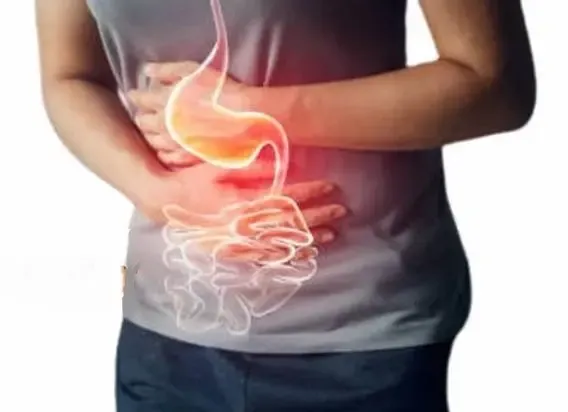Research Unravels Connection Between Gastric Bacteria and Stomach Cancer

Synopsis
Key Takeaways
- Gastric bacteria leak contributes to stomach cancer development.
- Helicobacter pylori interacts with non-H. pylori bacteria in pre-cancerous stages.
- Advanced imaging technology pinpointed bacterial locations.
- Early detection of H. pylori can reduce cancer risk.
- Antibiotic treatment ineffective once pre-cancerous changes occur.
New Delhi, Feb 26 (NationPress) Gastric bacteria, which permeates the stomach lining, significantly contributes to the development of stomach cancer—a condition with limited treatment avenues and low survival rates—according to a study released on Wednesday. The research, conducted by scientists from the University of Birmingham, uncovered a vital interaction between Helicobacter pylori and non-H. pylori bacteria during the pre-cancerous phase of gastric cancer.
The findings, published in the journal Helicobacter, may lead to improved treatment strategies for pre-cancerous conditions.
“We are thrilled about the implications of this discovery for fostering new research directions in stomach cancer prevention. A straightforward antibiotic regimen might be an effective treatment for these bacteria. Nevertheless, extensive work remains,” stated Dr. Amanda Rossiter-Pearson from the university.
Dr. Rossiter-Pearson highlighted the necessity to “identify these bacteria and comprehend how their presence in a pre-cancerous state affects the likelihood of developing stomach cancer in patients.”
Gastric cancer ranks as the fourth leading cause of cancer-related fatalities globally. While infection with Helicobacter pylori is typically asymptomatic for most individuals, it has long been recognized as the primary risk factor for stomach cancer.
However, the reason only 1 percent of infections escalate to gastric cancer remains unclear. To investigate this, the research team employed advanced imaging technologies to accurately locate the bacteria. Their observations indicated that while H. pylori exclusively colonizes gastric glands, non-H. pylori bacteria leaked through the stomach lining in the pre-cancerous state known as gastric intestinal metaplasia.
The results imply that bacterial leakage into deeper gastric tissues may be a previously underestimated factor in the progression of cancer.
If diagnosed early, H. pylori can be effectively eradicated with antibiotics, thereby lowering the risk of developing gastric cancer.
However, once pre-cancerous alterations occur, antibiotic treatments for H. pylori become ineffective, highlighting the pressing need for alternative therapeutic options.









